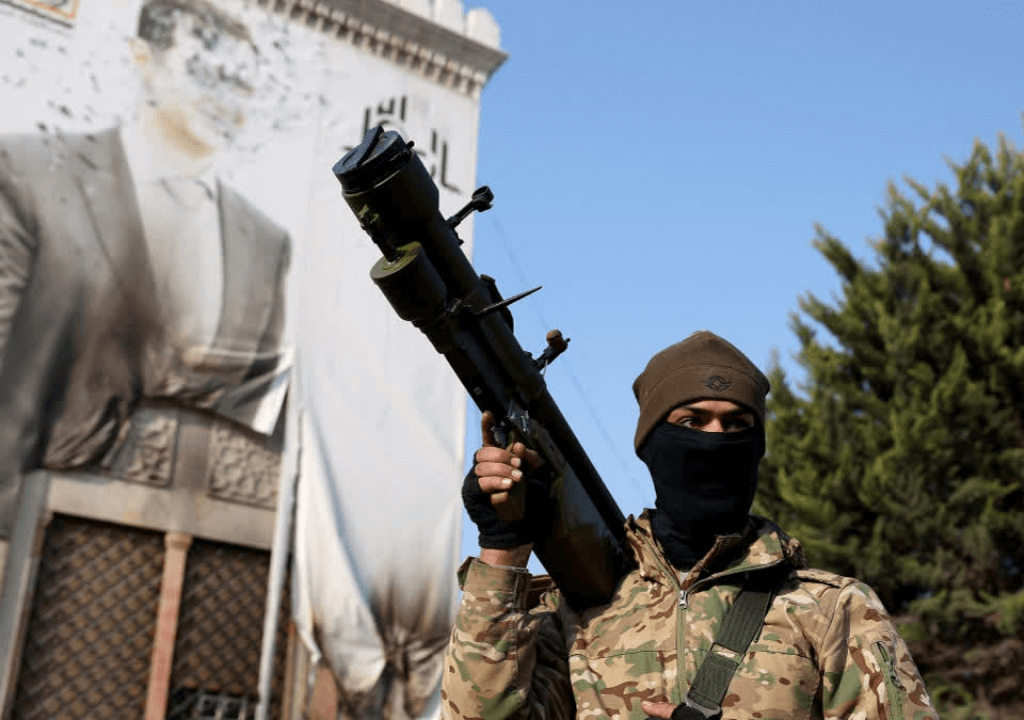The Syrian civil war, which began in 2011 with a brutality few could have foreseen, has, in a technical sense, reached its conclusion. The regime of Bashar al-Assad, worn down by years of conflict and international sanctions, now belongs to history. In its place, Damascus is now under the control of Hay’at Tahrir al-Sham (HTS), a Sunni Islamist faction left to govern a fractured nation, torn apart by sectarian divisions and shaped by decades of authoritarian rule.
To much of the world, HTS remains an organization shrouded in infamy, its name still marked by the stigma of terrorism. Yet, in the alleys of the capital and the corridors of power, its leaders—chief among them Ahmed al-Sharaa, better known as Abu Mohammad al-Jolani—project an image of determined ambition. Their rhetoric emphasizes a break from the grim patterns of extremist rule, rejecting comparisons to the Taliban and pledging an approach guided by pragmatism and, perhaps, restraint. However, words, however carefully crafted to reassure a skeptical world, cannot erase the unease of minorities—Shia, Kurds, and countless others—whose fragile existence on the nation’s periphery remains haunted by the specter of displacement, discrimination, or worse.
HTS’s tenure in Idlib, long a laboratory for its ambitions, hardly inspires confidence. Reports from the years of its administration there paint a picture of a governing apparatus that struggled to transcend its militant origins, marred by accusations of repression and ineptitude. Now, thrust into the complexities of running a modern state—an endeavor demanding more than rhetoric and religious zeal—the group must wrestle with a task that has humbled leaders far better prepared.
The biggest challenge for Syria’s new administration is shedding the “Terrorist” label attached to its leadership—a designation that complicates its path to recognition, international aid, and the maneuvering room needed in Syria’s fragmented political landscape. For Hay’at Tahrir al-Sham (HTS), securing legitimacy could unlock vital support from foreign powers, bolstering its position in a potential tug-of-war with rival factions and even a looming conflict with Kurdish forces.
Diplomacy, often defined as the art of achieving the improbable, has become the tool of choice for Syria’s de facto leader, Ahmed al-Sharaa. Blacklisted as a terrorist by the United States, United Kingdom, European Union, and United Nations, al-Sharaa has managed to carve out surprising diplomatic inroads. Shedding his nom de guerre, Abu Mohammed al-Jolani, and the trappings of militant rebellion, he has recast himself as a statesman intent on steering Syria out of five decades of Assad rule. His overtures to Western officials have already borne fruit, with the United States recently lifting a $10 million bounty on his head following what he described as “Productive” talks.
Winning Western support could prove transformative. Access to international aid would accelerate Syria’s reconstruction after more than a decade of ruinous war. Al-Sharaa’s government, if granted a modicum of trust by the West, could also leverage Sunni solidarity to attract funds from Gulf powers such as Saudi Arabia and the United Arab Emirates. An alignment with Sunni-majority nations might ease tensions with Israel, paving the way for regional stability—or at least détente.
The Kurdish question, however, remains a stumbling block. Turkey, HTS’s largest benefactor, vehemently opposes Kurdish autonomy in Syria, while the United States may pressure Damascus to seek a fragile coexistence with Kurdish factions as part of any broader reconciliation. Al-Sharaa’s ability—or inability—to navigate this minefield could define his administration’s relationship with the West.
Iran poses an equally complex challenge. Maintaining the fragile allegiance of Syria’s Shia minority will require delicate handling, particularly if Tehran views the new Sunni-led administration as a threat to its regional ambitions. Any missteps here risk turning Shia groups, with Iranian support, into a destabilizing force within Syria.
Russia, meanwhile, cannot be ignored. Marginalized on the global stage but entrenched in Syria, Moscow remains a power broker capable of influencing Damascus’s fortunes. Al-Sharaa must walk a tightrope, balancing old alliances while pursuing new ones—a test of his diplomatic finesse as much as his political will.
The harsh realities cannot be ignored: over 90 percent of Syrians live in poverty, more than six million have fled the country, and another seven million remain displaced within its borders. A decade of war has crippled the economy, leaving the nation in ruins. For HTS, the road ahead demands more than lofty promises—it requires pragmatic leadership and skilled diplomacy to secure the support essential for Syria’s reconstruction and renewal.
A stable Syria offers more than just domestic benefits. Refugee returns could ease migration pressures on Turkey and Europe, but the UN has cautioned that hasty repatriation without international support risks reigniting the country’s deep-seated conflicts. Damascus must aim higher than mere stability; it must pursue sustainable peace within a unified state. That vision demands foreign powers, such as Israel, which continues to occupy Syrian territory illegally, step back to allow the country to heal.
Sharaa’s calls for revisiting Syria’s political transition, particularly the relevance of the 2015 UN Security Council resolution that shaped it, carry merit. Yet his next steps will be decisive. If he insists on entrusting the drafting of a new constitution to a handpicked committee of loyalists, he risks repeating the mistakes of his predecessors. A meaningful constitution must emerge from an assembly elected by Syrians or representatives of the country’s vast diversity—not from a closed circle of ideological allies.
Failure to adopt an inclusive approach could erode the legitimacy of a new charter, reducing it to a document as disregarded as the Assad regime’s defunct constitution. Sharaa’s rhetoric suggests he understands the stakes, but his actions will determine whether Syria’s long-awaited renewal can take hold—or whether its divisions will only deepen.








